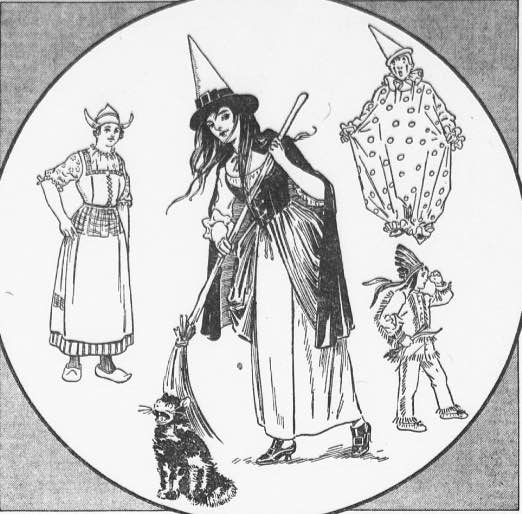
Everyone has their research on the origins of Halloween (Samhain). Here is one brief look at origins that was published in 1914. What surprised me most about this article was that it capitalized Pagan – many Christians/monotheists don’t as a form of insult – and the reporter made no attempt to call the Pagan holiday a bunch of hooey.

The Origin Of Halloween
The only mysterious festival left to prosaic Americans is Halloween. Its origin is plainly Pagan, although the romantic element has come to us from England, Ireland, and Scotland.
Around the 1st of November the Druids were supposed to hold their worship of the sun god, thanking him for the harvest. Huge sacrificial fires were lighted in his honor, and kept lighted for days. This influence can still be seen in the “bonfire night” in Ireland.
The Roman conquerors penetrated as far as Britain, and from them comes the custom of using nuts and apples on Halloween. On this night Saman, the lord of death, was believed to call together all the souls of the wicked. These were condemned to inhabit the bodies of beasts for a year, and Halloween marks their release.
This fact – or belief – perhaps, marks the predominance of the mysterious element in Halloween frolics. It is the night when witches, elves and evil spirits walk abroad. they sour the cream, tie cats’ tails together and perform the thousand and one pranks usually attributed to small boys.
Robert Burns in his poem, “Halloween,” gives us a good description of the ways employed to penetrate the veil of the future. Three nuts are placed on the hearth. Each is named after a lover. If one cracks, he will be unfaithful. If one burns, he will be faithful, etc. Many maidens ate an apple slowly before a looking glass. The face of her future husband was supposed to peep over her shoulder.
Children born on Halloween are supposed to have the power to perceive and communicate with spirits. Sir Walter Scott makes use of this in his romance, “The Monastery.”
Source: Evening Public Ledger. Newspaper. October 31, 1914.

